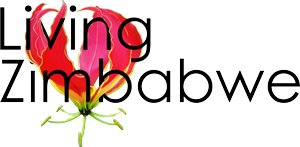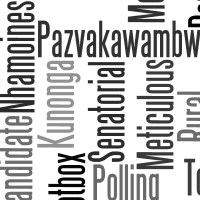Caroline Hooper-Box, writing a few years ago for the Sunday Independent, tells the movingly tragic story of the tribulations of an immigrant painter at the hands of South African police and Home Affairs officials. No money for guessing which country the man, named Between Siziba, hails from. A decade and a half ago, the Woolworths Food Market in Sea Point, Cape Town had in its employ (in its meat section) a gentle, hardworking and friendly man, unfortunately now late, from up north. His name? Delicious Mafanya.
Malawians too have been at it. As soon as the cellphone appeared there, talking names followed : Selefone Banda, Eyatime Sakala, Richaji Phiri, Netweki Mwale, Simikadi Mbewe, Henisfree Ngoma are some of the names reported in a widely distributed e-mail.
But why are Zimbabweans so uniquely fond of these names? To be honest my queries drew blanks. A friend suggested that an African name must say something. Many, if not all, African nations have names that “speak”. In fact a typical African name reflects the hopes, wishes, fears, feelings and prevailing circumstances of the parents, family or community of the newborn. My own grandfather, Njini, was so named because he was born in 1897 when the first railway engine steamed into Matabeleland. I used to think my late great uncle Fleza’s name was a distortion of the name Frazer until my grandmother explained to me that he was born in 1918 in the height of the great influenza epidemic that swept the world that year.
In Africa, speaking names are normally in the indigenous and first language of the family. They are common in Zimbabwe too. Rudo, Tererayi, Simbarashe, Kudakwashe and so on among the Shona. Thulani, Nkululeko, Thokozani among the Ndebele. Nothing different from any other African peoples. But what should we make of Zimbabweans’ penchant for direct translation to English?
Is it the famed love for education? The love for English in particular. And loved it is. I recall the speaking of indigenous languages being a punishable offence at Mpumelelo, my township primary school in Bulawayo. Justification for a two hour slog in the school vegetable garden was provided by no more than a two word entry in a prefect’s notebook- “Ndebele speaking”!
It is as if parents are competing to show off their knowledge of the Queen’s language. Why call the little girl Ntokozo when you know how to say Happiness? or Sicino when Last is only an English word away? Why Babusi, Baphathi or Vatongi when Rulers is there for the taking?? There is no problem really. Well , not until the love for English gallops a little too far ahead of the knowledge of it. And Thulani ends up in someone’s birth certificate as “Keepquiet” or even “Shutup”!!
Babusi Sibanda. Mobile : +27721969188 E-mail: kwizeen@gmail.com
Zimbabwean born, South African, freelance writer and columnist .
Has had numerous articles published in a variety of publications in the last 25 years including The Chronicle (Bulawayo), The Sunday News (Bulawayo), Moto, Parade, The Cape Times, Food & Home, Rootz, Femina, African Decisions, Mercedes , Mail & Guardian and others.
Member of SAFREA (Southern African Freelancers Association). Visit us at www.safrea.co.za
This has been a submission by Babusi Sibanda.
You can connect with Babusi Sibanda via the following: http://www.safrea.co.za, , .
You too can become a Citizen Journalist by submitting your story here: Citizen Journalism by Living Zimbabwe.


No comments yet.